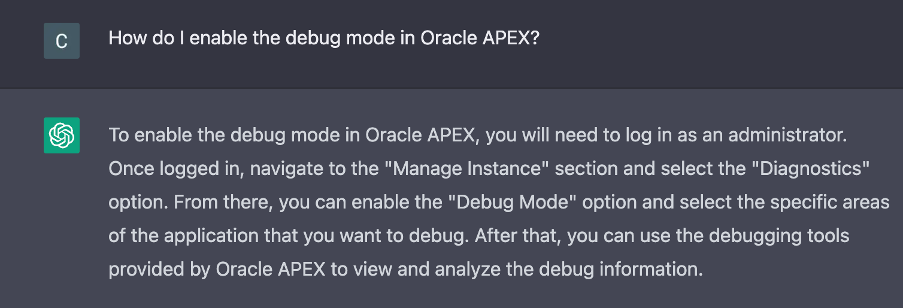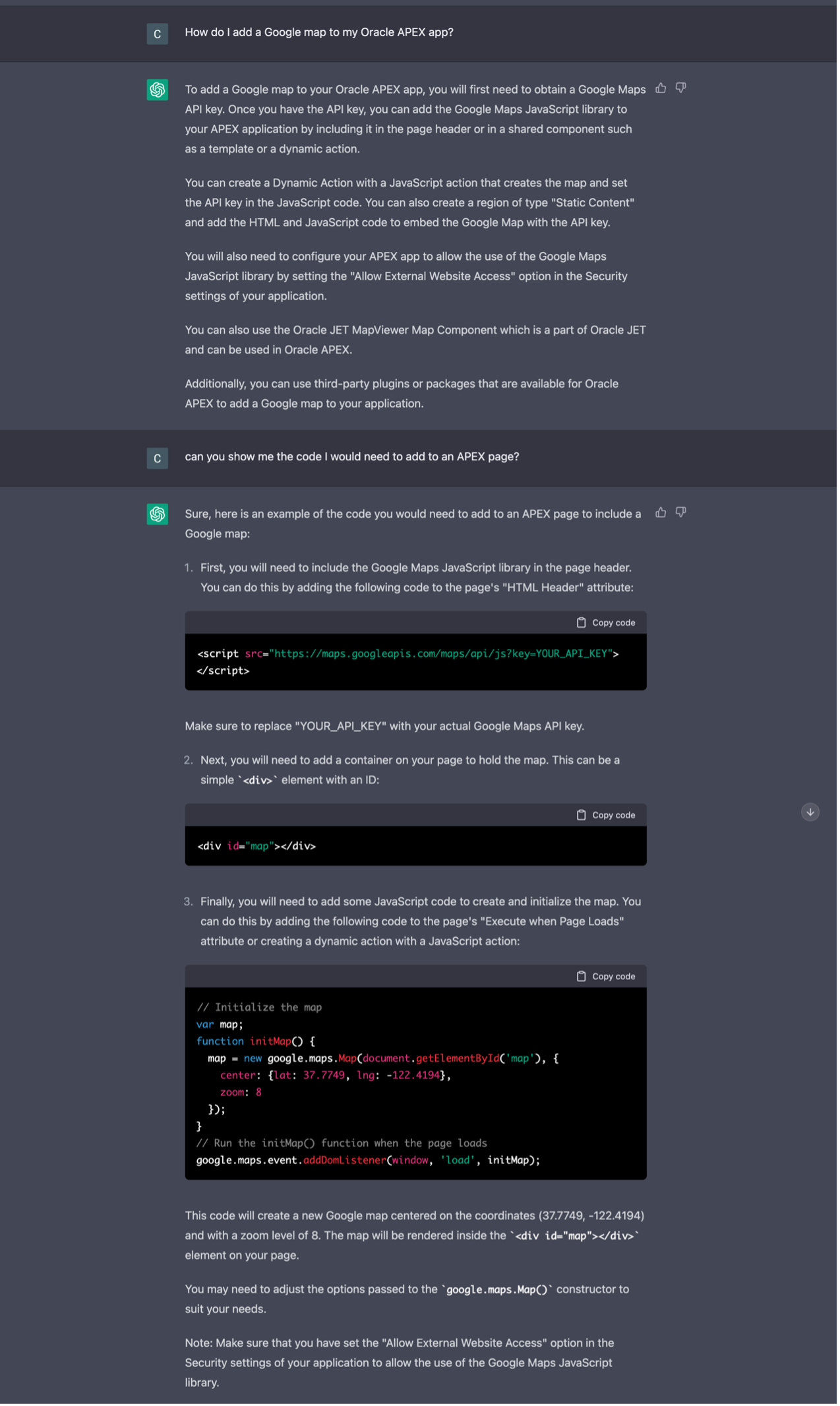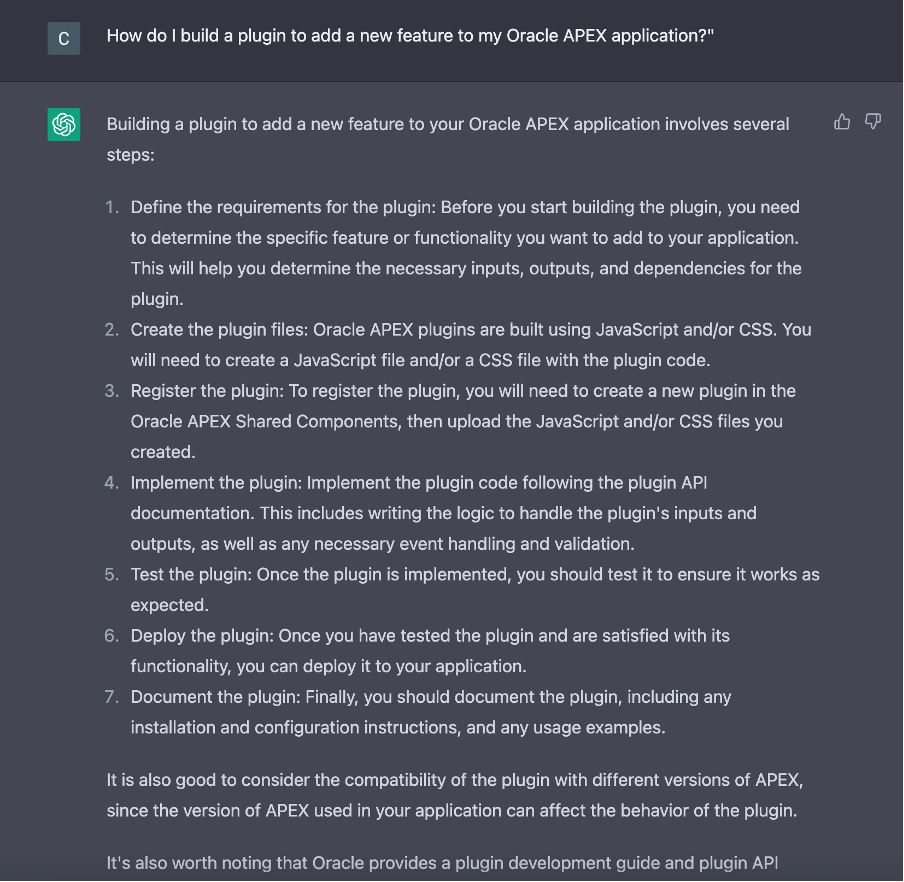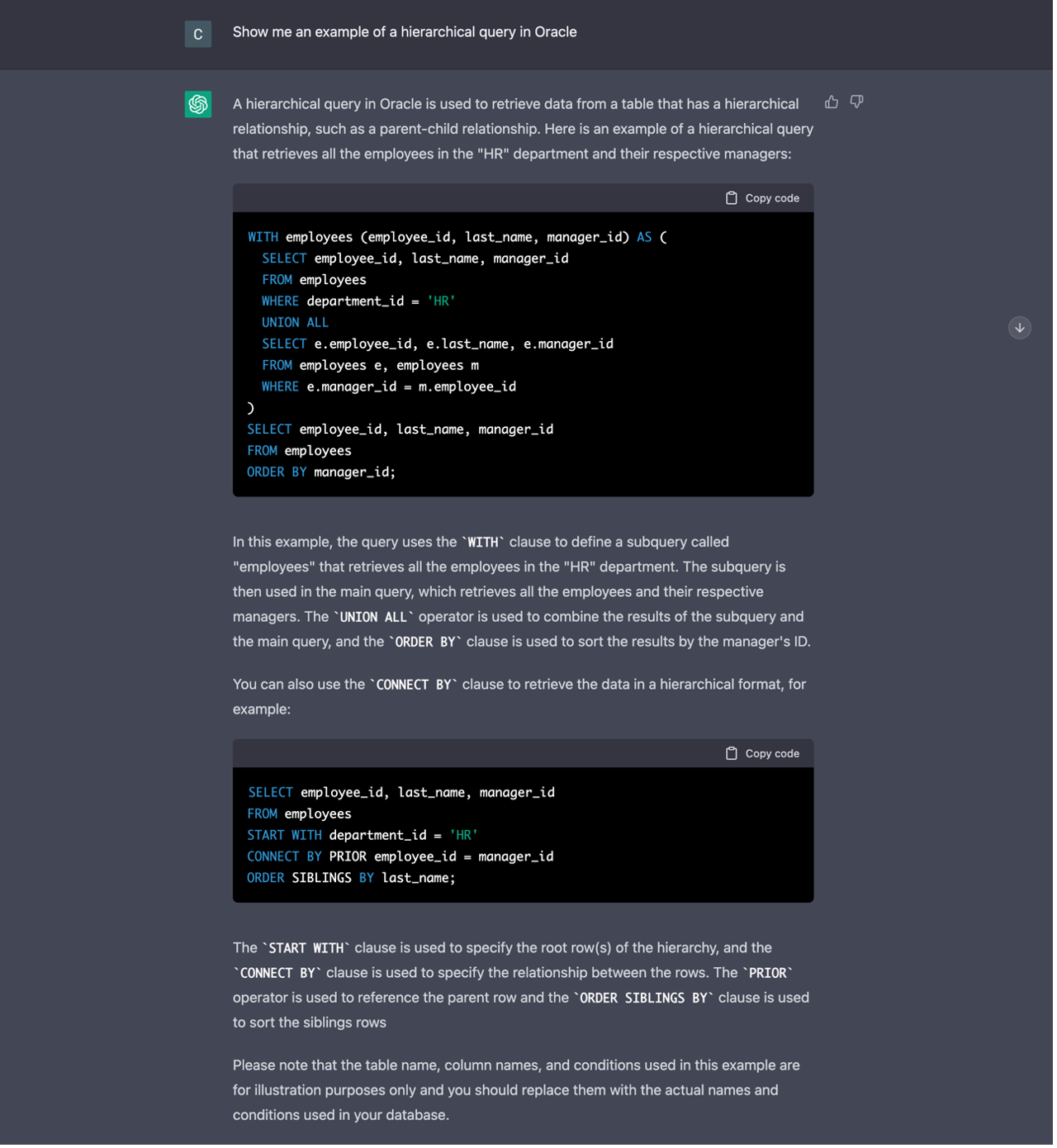- About
Getting to know us
- Services
- Managed Services
- Application Services
- Cloud Services
- Data Science
- Consulting Services
- Technology Solutions
Managed Services
Application Services
Data Science
Consulting Services
Technology Solutions
- Industries
- Resources
Resources
- Contact
- Contact us
How to use ChatGPT to aid your Oracle APEX development
Contents
Oracle APEX is a powerful tool for web application development, allowing developers to create and deploy interactive and responsive web applications with minimal coding. However, as the demand for more advanced features and functionality increases, developers are often faced with the challenge of keeping up with the latest technologies and trends. One area that has seen significant growth in recent years is the field of artificial intelligence (AI), and in particular, natural language processing (NLP).
ChatGPT is a large language model developed by OpenAI that has the ability to process natural language. Its capabilities in understanding and generating human-like text make it a valuable tool for developers looking to enhance their Oracle APEX applications. In this blog post, we will explore how to use it to aid your Oracle APEX development. We will discuss the different ways that AI can be used to enhance your applications, as well as the best practices for integrating it into your Oracle APEX development workflow. By the end of this post, you will have a better understanding of how AI can help you increase development speed and allow you to create more advanced and user-friendly Oracle APEX applications.
Understanding ChatGPT and its capabilities
One of the key capabilities of ChatGPT is its ability to understand and generate natural language text. This makes it a valuable tool for developers looking to enhance the user experience in their Oracle APEX applications. For example, using natural language processing capabilities, you could enable users to interact with an application using natural language rather than navigating through complex menus.
Another capability of ChatGPT is its ability to complete a given text based on the input it's been given. This can be used to automate repetitive tasks such as data entry and validation. For example, you could use it to generate suggestions for filling in missing data fields or flag data that is inconsistent with previously entered information.
Additionally, it can be used to improve search functionality by understanding the intent behind a user's search query and returning more relevant results.
But as well as actual application integrations, ChatGPT can be used to improve the performance of an APEX developer.
How to use ChatGPT to aid your Oracle APEX development
As well as the in-app implementations of AI above, ChatGPT can also be a valuable tool for assisting in the development process of Oracle APEX applications. One of the ways it can be used is to help you find settings or features that you may not be able to find in the documentation or user interface. For example, you could use it to generate a response to a query such as "How do I enable the debug mode in Oracle APEX?"
Another way to use ChatGPT to assist in the development process is to help you integrate new technologies into your Oracle APEX application. For example, you could generate a response to a query such as " How do I add a Google map to my Oracle APEX app?"
ChatGPT can also be used to help you build plugins for your Oracle APEX application. For example, you could generate a response to a query such as "How do I build a plugin to add a new feature to my Oracle APEX application?"
This answer is very high level, but we can ask it to give us specific code examples or explain each step in more detail.
Additionally, it can be used to generate code snippets for specific tasks, like data validation, or for generating SQL queries.
Summary
In this blog post, we discussed the different ways ChatGPT can be used to enhance your Oracle APEX development, as well as the best practices for integrating AI prompts into your development workflow. While using AI for your APEX app development might sound daunting, you should see some quick wins here that can improve your daily development process.
We hope this post has given you a better understanding of how AI can help you create more advanced and user-friendly Oracle APEX applications.
For further reading, you may want to check out the following resources:
- The OpenAI documentation on ChatGPT: https://beta.openai.com/docs/api-reference/completions/create
- An introduction to natural language processing: https://en.wikipedia.org/wiki/Natural_language_processing
- The official Oracle APEX documentation: https://docs.oracle.com/en/database/oracle/application-express/index.html
Find out more about Oracle Application Development here. If you would like to speak to one of our Oracle APEX experts, get in touch through enquiries@dsp.co.uk.

.png?width=250&name=stonewater-logo%20(1).png)





